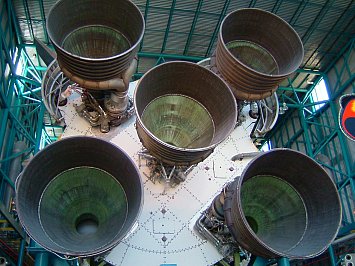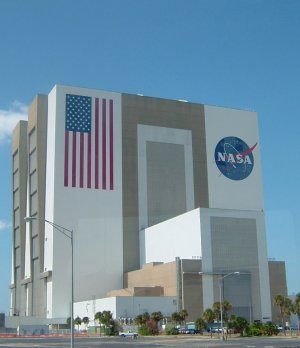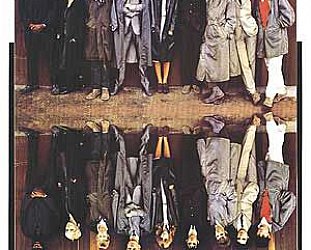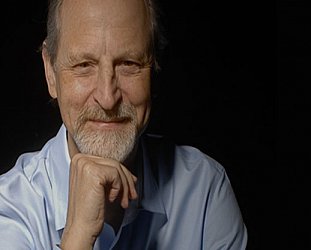Graham Reid | | 2 min read

From this distance it's hard to explain to people, young people in particular, how engaged many people around the world were with the space race between the Russians and the USA in the Sixties. Kennedy said the US would put a man on the moon but the Russians had got a man, Yuri Gagarin, orbiting the Earth first.
It was all on.
When Neil Armstrong did walk on the moon in '69 the world – an estimated 600 million near televisions anyway – stopped to watch those crude but compelling images.
But it wasn't just the idea of actual space exploration which had people talking, this was the decade of the first Star Trek series, Dr Who, Lost in Space, The Jetsons, My Favourite Martian and other pulp television shows with the notion of space at its centre.
Then there was 2001; A Space Odyssey and Erik Von Dannekin's enormously popular book Chariot of the Gods which proposed that aliens had come to this planet at some time in the very distant past (how else to explain the pyramids and the Nazca lines?) but had then abandoned us.
More seriously there was a weekly television programme in New Zealand, the Night Sky hosted by the self-taught astronomer Peter Read, which ran for a decade from '63.
People were looking up . . . and Bowie arrived with A Space Oddity.
There were songs about spacemen (Hey Mr Spaceman by the Byrds in '67 capturing both the external and internal flight in the hippie era) and aliens.
Space was the place and for that brief moment we seemed to be living in the future. Then it stopped and we started to take space for granted and only when tragedies struck – like the Challenger explosion in '86 – did we pay attention. Right now there are half a dozen people circling this planet on the Space Station.
In the on-going Soundtracks series is Space Race (screening on Prime Friday December 1), a useful look back at that time . . . and some of the songs which were inspired by or commented on space exploration.
It is shocking but true to think, as David Crosby comments, that your iPhone has more technology than there was on Apollo 11 which took Man to the moon.
 The Soundtracks series has
been interesting because in many ways the music is incidental to the
larger narrative . . . and in this case it is a story which comes
from a technologically primitive time compared with what we take for
granted today.
The Soundtracks series has
been interesting because in many ways the music is incidental to the
larger narrative . . . and in this case it is a story which comes
from a technologically primitive time compared with what we take for
granted today.
Getting to the moon of course was only half the story, getting back was just as difficult.
If that went wrong then . . . “Ground control to Major Tom . . .”
The footage in this episode reminds you of a time of ambition which went beyond human understanding. In many ways it was about exploration and astronauts, not about scientific exploration.
As space historian Asia Siddiqi observes, this was the time of the Cold War and space was just a new arena in the global battlefield. So there was fear as much as excitement.
And not everyone was enthusiastic, as witnessed by Gil Scott-Heron's scathing Whitey's On the Moon and comedian Dick Gregory. By the end of that decade there was massive poverty in black communities in America (and white areas) and Vietnam.
The doco doesn't shy away from this flipside of the exploration.
If you come to this hour-long doco for the music of the era – Byrds, Bowie, Elton John, Parliament Funkadelic, Sun Ra, Billy Bragg and others – you'll stay for the magic of space exploration and the footage.
It has been 45 years since the last man – who was the first scientist – walked on the moon.





post a comment